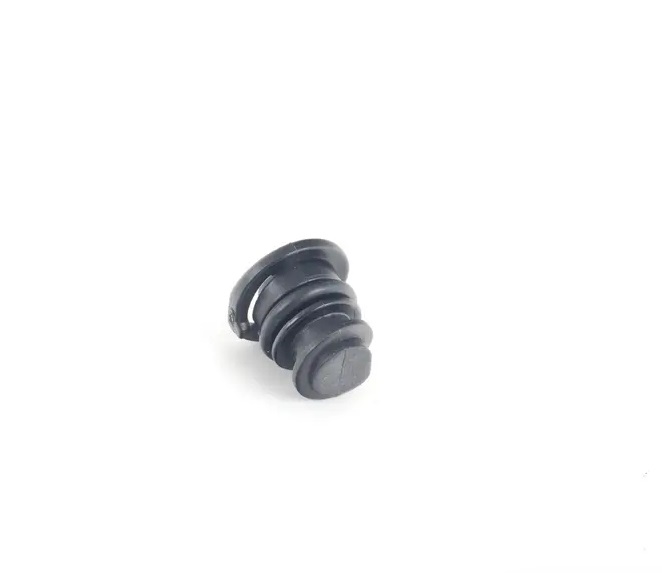Understanding Shaft Gaskets and Their Importance in Machinery Sealing Solutions
The Importance of Shaft Gaskets in Industrial Applications
Shaft gaskets are critical components in various industrial applications, playing a vital role in sealing and preventing leakage in rotating machinery. Their importance cannot be overstated, as they ensure the efficient operation of equipment across a wide range of sectors, including manufacturing, automotive, and marine industries. This article explores the function, types, materials, and maintenance of shaft gaskets to highlight their indispensable role in mechanical systems.
Function of Shaft Gaskets
At its core, the primary function of a shaft gasket is to create a seal between the rotating shaft and the stationary housing or body of the machine. This seal prevents the leakage of fluids, such as oil or water, that are crucial for the operation of various machines. In many cases, these fluids not only lubricate the moving parts but also help in cooling the system, thereby enhancing its efficiency and longevity.
Furthermore, shaft gaskets protect against contaminants such as dust and dirt. If contaminants were allowed to enter the machinery through gaps around the shaft, they could lead to significant wear and tear, resulting in costly repairs and downtime. Thus, the proper functioning of shaft gaskets directly correlates with the performance and reliability of the equipment.
Types of Shaft Gaskets
Shaft gaskets come in various types, each designed to meet specific operational demands. Some common types include
1. Rotary Shaft Seals These are specifically designed for rotating shafts, providing a dynamic seal that can withstand oscillation and vibration. They are commonly used in pumps and motors.
2. Static Gaskets Typically used in applications where the shaft does not rotate, static gaskets prevent leaks in flanges, ports, and other stationary interfaces.
3. Lip Seals Featuring a specially designed lip that makes contact with the shaft, these seals are excellent for repelling contaminants while retaining lubricants.
4. Composite Seals These combine multiple materials for improved performance, offering enhanced durability and resistance to extreme temperatures and pressures.
Each type of gasket has its unique properties, and selecting the right one is crucial for ensuring optimal performance.
Materials Used in Shaft Gaskets
shaft gasket

The choice of material for shaft gaskets is essential for their performance and lifespan. Common materials include
- Rubber Known for its flexibility and ability to withstand a wide range of temperatures, rubber gaskets are often used in hydraulic applications.
- PTFE (Teflon) This material is resistant to high temperatures and aggressive chemicals, making it suitable for demanding environments.
- Composite Materials These are engineered to provide superior strength and durability, often used in high-pressure applications.
- Metal In applications where resilience is required, metal gaskets, such as those made from aluminum or steel, are employed to withstand high stress and temperature.
The material chosen affects not only the effectiveness of the seal but also its longevity and resilience to environmental factors.
Maintenance and Best Practices
To ensure the longevity and reliability of shaft gaskets, regular maintenance is essential. Here are some best practices
1. Regular Inspection Frequent checks for wear and tear can help identify potential issues before they become major problems. Signs such as leaks or unusual noises should be addressed immediately.
2. Proper Installation Correct installation according to manufacturer specifications is crucial. Failing to follow these guidelines can lead to premature gasket failure.
3. Environment Monitoring Keeping track of operating conditions, such as temperature and pressure, ensures that the gasket material is suited for the specific application.
4. Timely Replacement Gaskets should be replaced at intervals defined by the manufacturer or when signs of degradation appear. Delaying replacement can lead to more significant equipment failures.
In conclusion, shaft gaskets play an essential role in maintaining the integrity and efficiency of rotating machinery across various industries. Understanding their function, types, materials, and maintenance requirements is vital for anyone involved in machinery operation and maintenance. By ensuring the proper selection and upkeep of shaft gaskets, industries can enhance operational reliability and reduce the likelihood of costly repairs, ultimately leading to increased productivity and efficiency.
-
Understanding Polaris Front Differentials: A Guide for RZR, Ranger, and General Models
News Jun.30,2025
-
Exploring Oil Seal Technologies: From Traditional Felt Seals to Advanced Teflon and CFW Solutions
News Jun.30,2025
-
Crankshaft Oil Seals Explained: Protecting Your Engine from the Inside Out
News Jun.30,2025
-
Choosing the Right Oil Seal Supplier: A Guide to Brands, Types, and Standards
News Jun.30,2025
-
Advanced Oil Sealing Solutions: Exploring High-Performance Seals for Demanding Applications
News Jun.30,2025
-
A Comprehensive Guide to Oil Seals: Types, Materials, and Where to Buy
News Jun.30,2025
-
Understanding Different Types of Oil Drain Plugs: A Comprehensive Guide
News Jun.27,2025
Products categories















